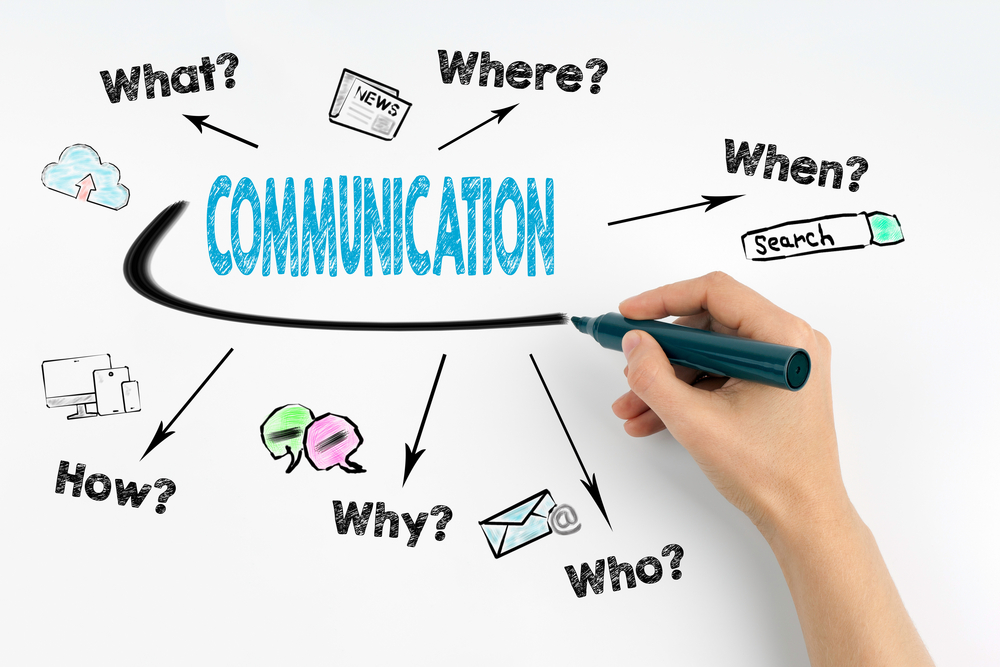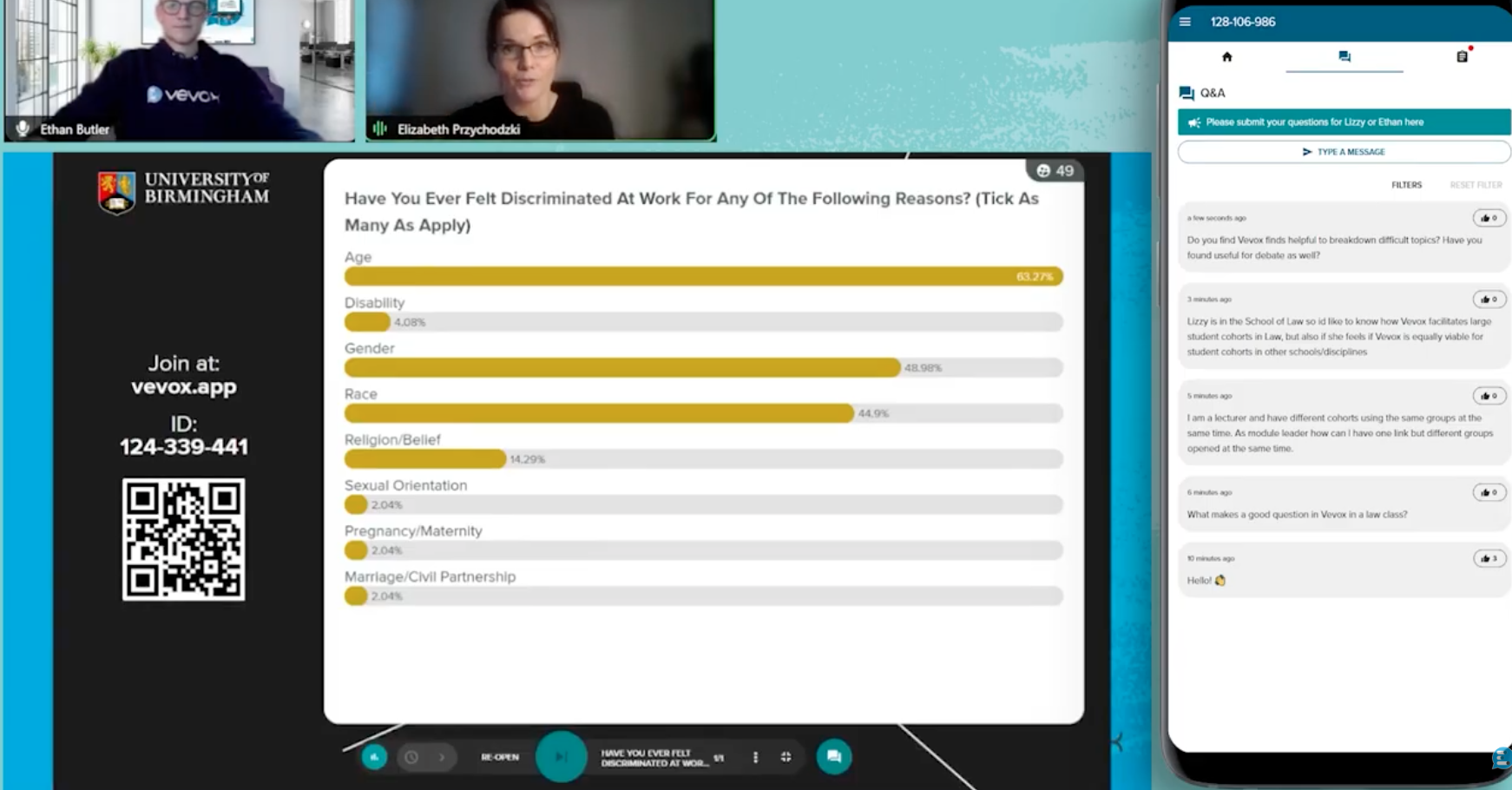If internal communication is poor it can lead to a myriad of issues such as:
- Personal conflicts
- Employee turnover
- Missed deadlines
- Redoing misaligned work
- Incorrect assumptions about goals
However, if you use the right internal communication strategy and take advantage of the best internal communication tools, your team's ability to predict and respond to problems will be greatly improved. Other things that will improve when a team is engaged are employee retention and engagement.
There are plenty of businesses that put a high value on communication, whether it’s connecting with customers, broadcasting to the media, or networking with suppliers. Unfortunately, engaging with employees is not always given such a high priority.
If you’re not sure whether you need to work on improving internal communication in your business, let’s see if we can convince you to make the effort. Let’s explore 7 of the most important benefits for your business.
1. Increased Responsiveness to Problems
How many times have you found yourself working on a task and there is an issue that you can’t resolve? When you talk to your colleague about it they just look at you with a quizzical look on their face. This can be a very frustrating situation to find yourself in, but it can be resolved if there are clear processes in place for connecting with the team. It means you’ll have access to the right information just when you need it. Ultimately, this can prevent an issue from spiraling out of control and leading to much bigger problems.
During times of crisis, internal communication must be succinct, resonate with employees, and be honest, transparent, and humane. Effective communications bring a workforce together during tough times. When communication is better, everyone knows what to do in the event of workplace issues.
It’s also critical that the communication strategy employed in your business gives employees more confidence rather than leaving them with more questions and a feeling of confusion.
2. Enable Feedback and Innovation
Effective comms inspire employees to be more creative and take the initiative. After all, innovation is key to the success of any organization.
Communication should encourage a dialogue (transparency) that opens the door to feedback, encourages employees to be proactive, and suggest new ideas. This will dramatically change your business outcomes with improvements in the quality of work and the efficiency of the workforce. It’s a mistaken belief that innovation comes from the top. More often than not, those working on the shop floor come up with some ground-breaking ideas. However, there needs to be a system in place that provides the opportunity for getting their voice heard.
There is a range of internal communication channels that allow employees to contribute, for example, an effective and accessible conference calling service. When communication channels are available, employees will happily make suggestions and improvements. Allowing employees to drive change and own those changes means your business also benefits from improving engagement levels.
3. Higher Employee Retention Rate
When an employee feels more engaged they are less likely to look for alternative employment. Studies show that retention rates could be improved by 4.5 times if effective comms were available. Good communication helps to retain staff and foster culture. Ineffective communication, on the other hand, can lead to alienation and make employees more likely to leave.
A good two-way communication line can often uncover issues and things can be put in place before employees feel like they need to leave. You should make two-way conversations one of the main goals of your internal communications strategy. Rather than firing off mass emails that few people are likely to read, interactive conversations that are thoughtful will promote engagement.
You can also improve retention rates by making the employee experience a better one. Use internal communications to advertise:
- Sports club membership
- Company events
- Free cab service for anyone who finds themselves working late
- Free healthy snacks and drinks
- The addition of a chill-out area to the workplace
If your employees aren’t aware of these benefits, how can they take advantage of them?
4. Boost Employee Engagement and Productivity
Communication that effectively engages and encourages employees can boost employee morale and engagement. Engagement can take many forms. For example, employees feeling confident enough to ask questions at an All Hands event. Being able to comment on important news updates or sharing what their team is working on are also indications of good employee engagement.
Good communication can increase productivity because employees know what’s expected of them, each other, and when to go for help. Likewise, good communication lines can motivate teams.
All too common in business is the one-way information stream. Leaders deliver organizational information and there is no dialogue or opportunity for questions. The best internal communications strategy is one that delivers a two-way dialogue between leaders and employers.If business leaders want to drive employee engagement, they must show that they value employee feedback and discussion. It’s vital that employees know their voice is being heard.
5. Increase Employee Contribution
The figures for the number of employees who feel engaged at work are sadly very low. However, there are many ways their engagement can be improved. It’s worth the effort because an employee who feels engaged will be more productive. They will be more likely to be engaged and contribute more to the discussion or overall project, the company as a whole, or the team.
How can you increase employee communication? Hold communication meetings that ask for employee feedback and questions/ideas. Provide room for honest feedback, pushback, and public debate of ideas and issues.
Employees are likely to feel more engaged and be more successful. A viable option is to use Vevox polls and anonymous Q&A. It is a great platform for getting honest and uninhibited feedback. Participants are given a chance to voice what questions they value by upvoting comments they want to be answered. Results can be sorted by likes so that the most popular questions are displayed first. It is also a truly inclusive platform, includes optional anonymity, and crowdsource honest questions. Another option is to ask for anonymous feedback. This helps uncover issues and communication can take place without barriers such as fear of judgment or repercussions.
Effective comms will always speak to the audience and invite further dialogue rather than always closing off a conversation. Presenting information is fine but inviting honest discussion is important for employees to feel accepted and unafraid or embarrassed to ask or question things.
6. Improve Teamwork
Effective communication is vital to supporting collaboration, especially across regions/departments. You can use communication to unite teams and can help break ground on projects and problem-solving. Internal communication relies on good company culture, and the opposite is also true. When there are no hidden agendas or secrets, collaboration and teamwork are a natural part of the workplace and the company culture.
Not only do collaboration and communication improve teamwork, but it also boosts problem-solving and efficiency and brings the workforce closer together. It provides opportunities for employees to learn from others. In addition, it organically improves the organization’s knowledge base.
If you’re looking for a way to improve teamwork in your organization, consider adopting an internal communication platform. An employee app is one of the most reliable ways for employees to connect wherever they are and whenever they need to. Essentially, you’re creating a social space where they can meet, have a chat, and share vital information.
7. Empower Employees
Allowing your workforce to make their own decisions and choices empowers them to become more effective members of the team. The culture in your business should be one that encourages decision-making rather than focusing on rule-following. In essence, what you’re telling your employees is that you trust them to make the right decisions.
Internal comms can empower employees if they feel like they are being listened to and heard and their voices matter. It means they feel like they’re making a difference. A very effective way of creating engagement is with public praise. The success might be company-wide or a particular team, department, or person who is being singled out for praise. Communicating success stories and allowing employees to be actively part of company milestones, initiatives, and meetings helps them get fired up about making a difference in the organization.
Conclusion
So, there you have 7 benefits of effective internal communication. It's something you can use to drive everything in your business. When internal communication is effective, your business is more likely to be healthy, engaged, and succeed. Ensure the systems you use are well monitored and improved whenever necessary and they will be vital contributors to the success and growth of your organization.See 10+ internal communication tools that are crucial for increasing productivity and engagement.




